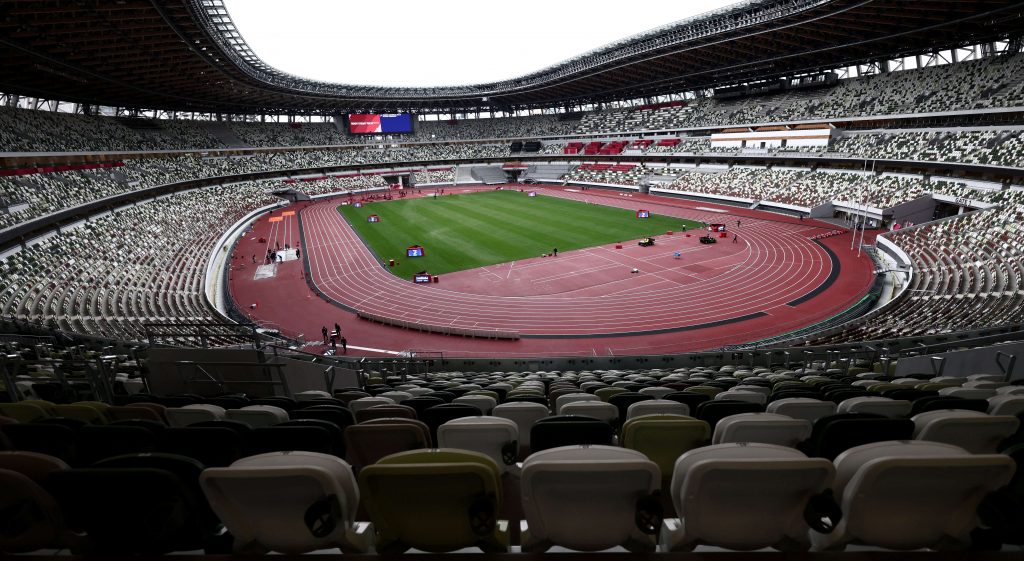
- ARAB NEWS
- 01 Jul 2025

Japan will decide this month on whether to allow domestic spectators at the Tokyo Olympics, the government’s chief spokesman said on Wednesday, following media reports a proposal to allow up to 10,000 people at events was under consideration.
The final call will be made taking into account coronavirus infection conditions and the prevalence of virus variants, Chief Cabinet Secretary Katsunobu Kato told reporters when asked about the reports.
Japan plans to move forward on a proposal that will allow up to 10,000 spectators or 50% of a venue’s capacity, whichever is smaller, at events during the Games, Kyodo News said late Tuesday, citing government sources.
Top officials among Prime Minister’s Yoshihide Suga’s administration are reviewing options such as putting a cap for the number of domestic spectators at 5,000 or 10,000, local television network TV Asahi reported.
Foreign spectators are already prohibited from the Olympics beginning on July 23.
Organisers and government officials in Japan have said they would continue to work on coronavirus measures for a “safe and secure” Games, and that a decision on domestic spectators would be made this month.
Japanese Economy Minister Yasutoshi Nishimura and the government’s top medical adviser Shigeru Omi will hold a joint news conference on Wednesday, the Cabinet Office said.
Nishimura and Omi would talk about the government’s coronavirus responses during the briefing on Wednesday, the Cabinet Office said, but did not provide further details and the time has yet to be decided.
Omi has been outspoken in recent weeks about the risks of holding the Games during a pandemic and has said guidance from him and other experts was not making its way to the International Olympic Committee.
The IOC has tried to quell such concerns by saying that most athletes and media coming to Tokyo will be vaccinated, and that so-called playbooks governing hygiene, movements and testing of participants will further mitigate infection risks.
The Olympics have already been postponed by a year amid concerns over how organisers can keep volunteers, athletes, officials and the Japanese public safe when they begin on July 23 after a fourth wave of infections.
Tokyo, Osaka and eight other prefectures remain under a state of emergency that is set to end on June 20. Osaka Governor Hirofumi Yoshimura said Wednesday he is against lifting the emergency declaration “too easily.”
Japan’s sluggish vaccination push is starting to gain steam of late, and recent polls have pointed to acceptance that the Games will go forward.
Reuters